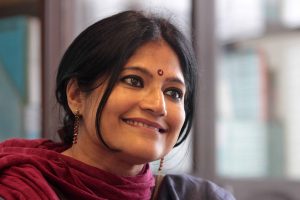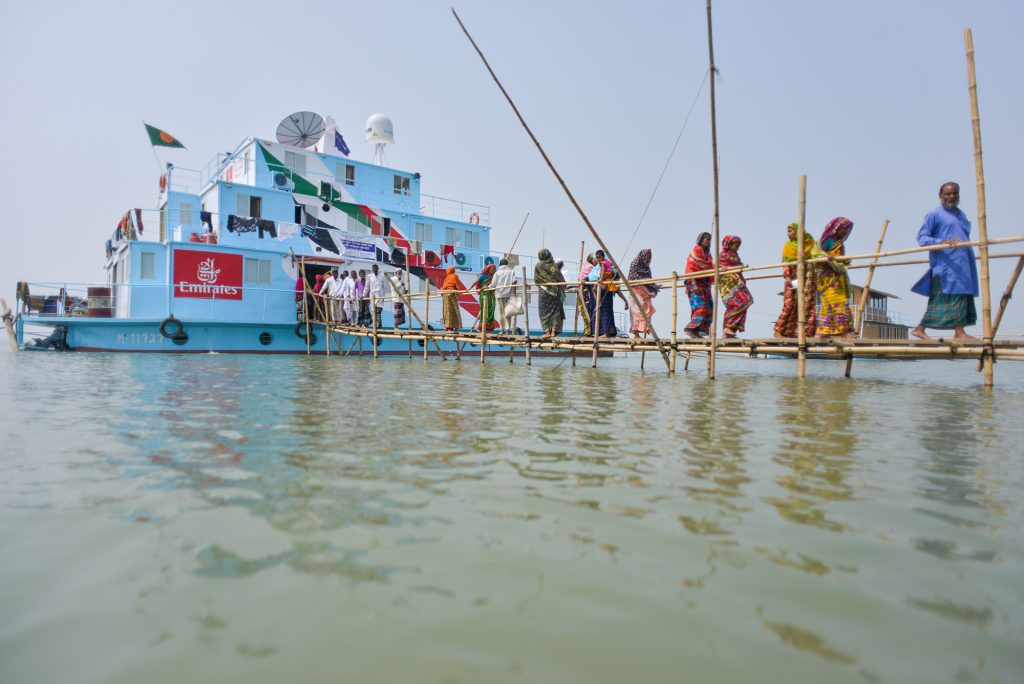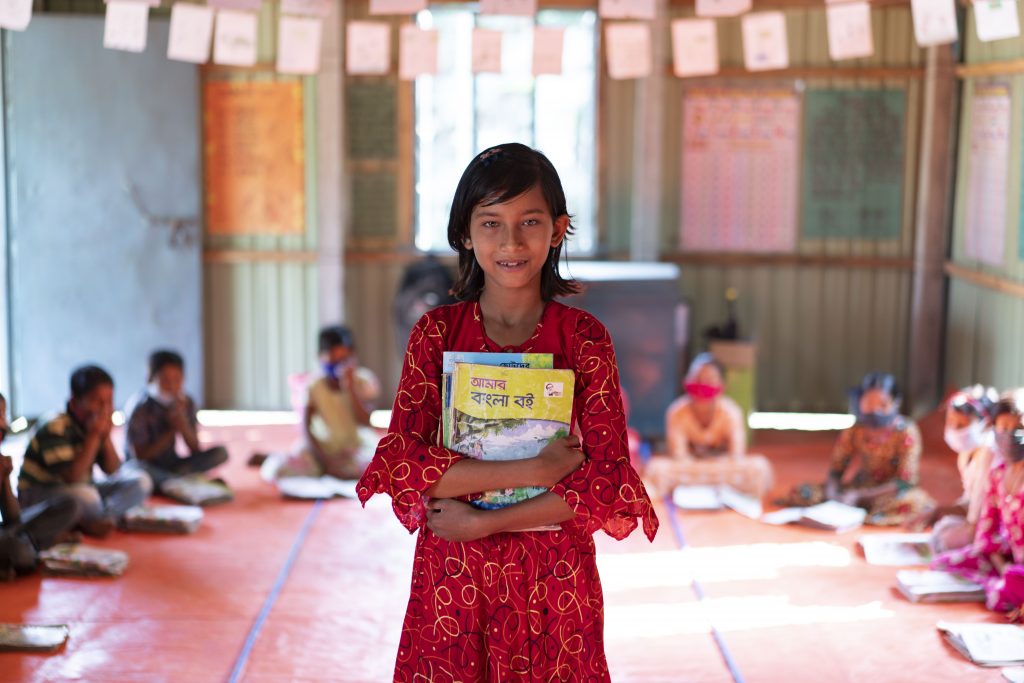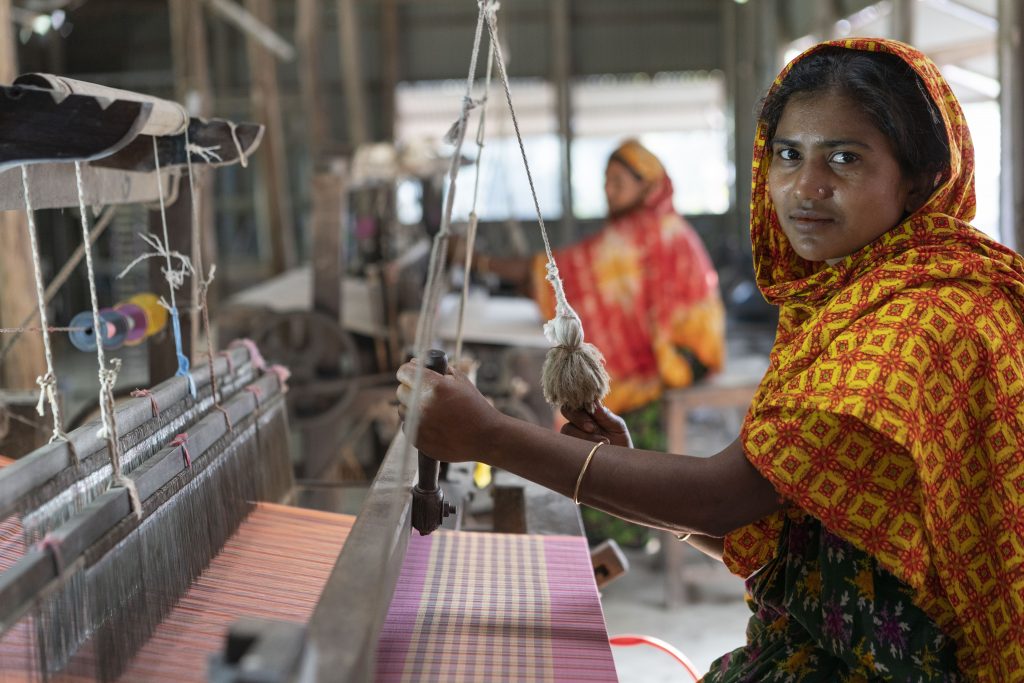The organisation “Friendship” helps communities in Bangladesh. Its founder Runa Khan is also a supporter of “One Health” – the approach that health of humans, animals and plants is mutually dependent.
Text: Dietmar Schobel

“While on a boat trip with my former husband, I witnessed the living conditions experienced by the poorest of the poor. Setting up ‘Friendship‘ immediately became a burning desire of mine. I was especially keen to support these people because I had been lucky in life. I grew up in a very privileged environment,” explains Runa Khan. She founded the aid organisation in Bangladesh in 2002.
The poorest of the poor are the people in her homeland who live on the chars, which are sedimentary river islands formed midstream or at the edges from sand and silt deposits. Most of these islands only exist for a few years as they are exposed to constant erosion and intense flooding. Living here means being continually threatened by natural disasters and crop failures, without any electricity or running water, schools or medical facilities.
A floating hospital

Consequently, Friendship first converted a barge into a floating hospital. This enabled general practitioners, opticians, dentists, surgeons and other health professionals to provide medical care for the people on the chars in the Jamuna river in northern Bangladesh, as they were otherwise unable to be reached. “It was not long before we noticed that one hospital ship alone was not enough. And so we began to organise mobile drop-in clinics. Small medical teams now visit remote communities every one or two weeks, or once a month,” reports Runa Khan.
Today, more than 4,000 people work for Friendship and 7 million people in the most unaddressed and climate-impacted communities in Bangladesh – and indeed, the world – have access to Friendship’s healthcare services. Two floating hospitals now serve the chars on the Jamuna, and a land hospital has been built in Shyamnagar on the coastal belt of Bangladesh. In the south of the country, static clinics have also been set up wherever possible. The budget at Friendship’s disposal for this and all its other activities totals the equivalent of 15-20 million euros per year, 90% of which comes from donations, says Runa Khan.
Four promises
Quality healthcare is part of fulfilling one of four commitments that Friendship makes to its stakeholders – Saving Lives. The others are Empowerment, Climate Adaptation and Poverty Alleviation. “These are our four promises that we make to the people. Simply because everybody needs hope and dignity,” says Runa Khan. Enabling the people themselves to improve their situation in life has been central to the work of Friendship from the very beginning. “It was not easy to find volunteers to provide medical care for the char islands,” recalls Runa Khan: “And so we trained the people there as medical workers.”
Women from the communities that receive support from Friendship can train to become a Friendship Community Medic-aide or a Skilled Birth Attendant, for example. Diagnosis and delivering babies are among their responsibilities, as are household visits and supplying advice on topics such as nutrition, family planning and hygiene awareness. The app mHealth gives them extra help for their work. It helps to store patient data, assists with diagnosis and allows Friendship Community Medic-aides to contact a doctor whenever necessary.
Teaching and climate adaptation

When Friendship began helping the river island inhabitants in the north of Bangladesh, schools were almost non-existent there as well. The organisation therefore provided the necessary primary school training for locals who had a certain minimum education. Finding secondary school teachers who are prepared to live on the chars, on the other hand, has always been difficult. Pre-recorded video classes screened through a solar-powered system serve as a solution to this problem. The pupils at the secondary schools are supported by facilitators, who are in turn able to contact the teachers as required.
Friendship’s many different climate adaptation activities include the mangrove reforestation programme, photovoltaic systems for family homes, schools, street lighting in villages and also the raising of plinths – these are cluster villages raised above flood levels to offer a shelter to house displaced communities and their possessions, including cattle, during flooding. And it almost goes without saying that Friendship arranges for training in adaptive agriculture techniques, such as saline-resistant crops and floating seed beds, for solar engineers and farmers.
Ways out of poverty

In order to give people the opportunity to escape poverty, women are trained to weave, dye and sew fabrics that are later sold by Friendship’s lifestyle brand, Colours of the Chars, in Bangladesh and Europe. “Besides this, farmers and fishermen are granted microloans with which they can renew their equipment,” explains Runa Khan, describing another example of how Friendship wishes to contribute to relieving the social and economic problems of people in the remote regions of Bangladesh.
The Friendship founder has already been honoured with several international awards for her successful commitment. She is also Honorary President of the One Sustainable Health Forum, which is dedicated to achieving a holistic, multidisciplinary and multisector approach to human health. How are Friendship’s actions linked to the “One Health” concept? “The health of people, animals and plants is closely and extensively connected. I am convinced of this, and it plays a major role in our hands-on work – day in, day out,” Runa Khan replies, and adds: “Because everything has a right to live.”
The health of people, animals and plants is closely and extensively connected.
RUNA KHAN, FOUNDER OF THE AID ORGANISATION “FRIENDSHIP” IN BANGLADESH
DATA AND FACTS ON BANGLADESH
166.3 million people live in Bangladesh, which spans an area of 147,630 km². Its population density is therefore 1,126.5 km², which makes it the world’s most densely populated country of over 10,000 km² surface area. The largest part of Bangladesh is a huge delta formed by large rivers that have their source in the Himalayas. Two thirds of the country lie a maximum of approx. 4.5 metres above sea level. Bangladesh is therefore one of the countries that is most severely affected and threatened by climate change – by the rise in sea levels, and also by increasingly powerful cyclones and a continual rise in the frequency of flooding. The country is in 7th place on the 2021 Global Climate Risk Index of the development and environmental organisation Germanwatch. According to estimates, by 2050 one in seven people in Bangladesh will have had to leave their homes.
Sources: https://www.laenderdaten.info/bevoelkerungsdichte.php, https://www.climaterealityproject.org/blog/how-climate-crisis-impacting-bangladesh, https://www.germanwatch.org/sites/germanwatch.org/files/KRI_2021_Tabelle_Zehn%20am%20meisten%20betroffenen%20L%C3%A4nder%202000-2019.jpg, accessed on 20 August 2022
